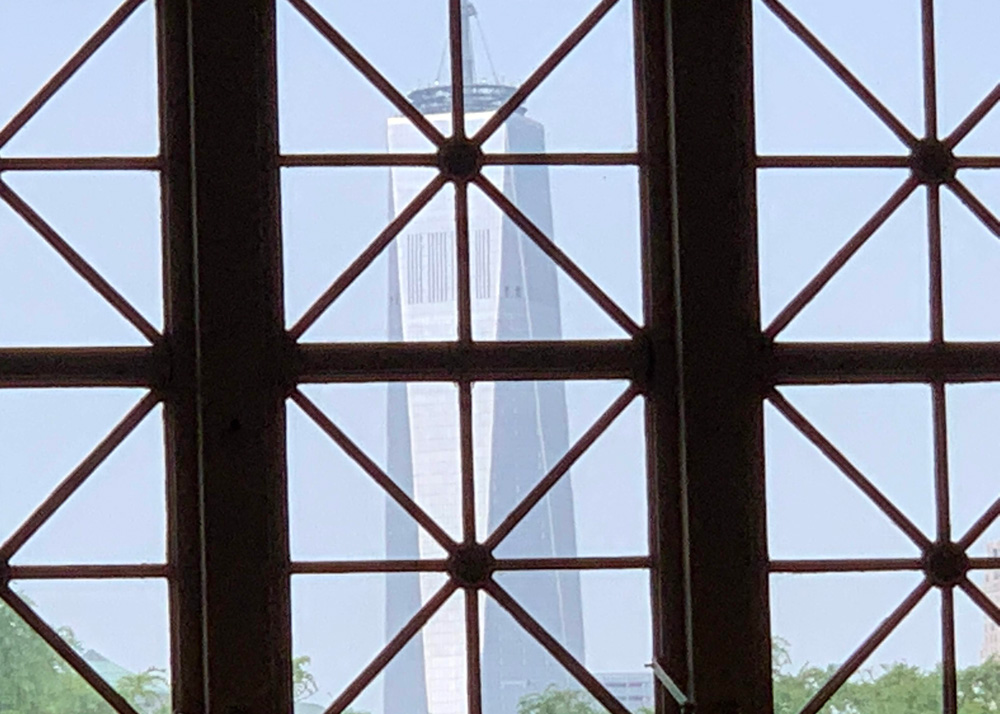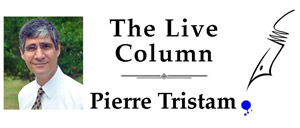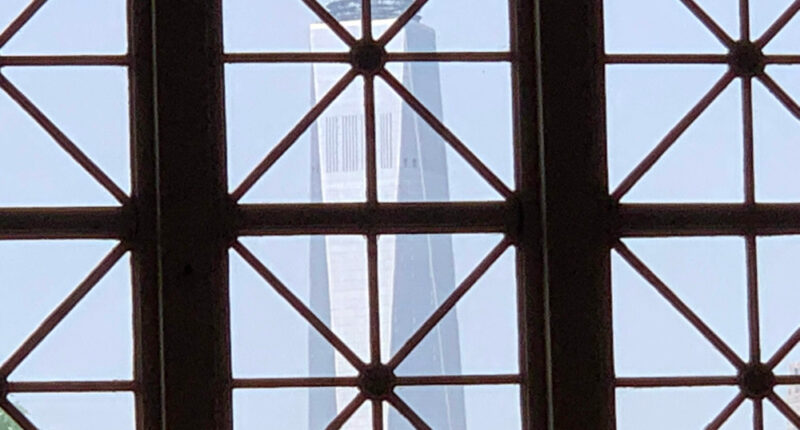
July 19 is an important date in my personal inconsequence. It was on this day in 1976, when I was not yet 12 and the Lebanese Civil War not yet 2, that my mother on a spitefully sunny morning informed me and my two brothers that our father had died. I’m pretty sure my childhood ended in the void of her sunken eyes that day. So did my trust in life. I’ve since lived as in a drizzle of shoes dropping, waiting for that final second.
 Despite the raging war, I was somehow spared. Two years later on the same July 19 I was escaping from Lebanon after a clandestine drive to the airport through West Beirut, passing vile Palestinian or viler Syrian checkpoints where the equally vile Christianity written in our identity papers could have, in this suburb of the Holy Land, cost us our lives one last time. It did not.
Despite the raging war, I was somehow spared. Two years later on the same July 19 I was escaping from Lebanon after a clandestine drive to the airport through West Beirut, passing vile Palestinian or viler Syrian checkpoints where the equally vile Christianity written in our identity papers could have, in this suburb of the Holy Land, cost us our lives one last time. It did not.
After a four-hour flight I landed in Paris, and two weeks later was in Kingsport, Tennessee, for the summer. Its haggard downtown was not markedly different than Sherwood Anderson’s Winesburg, as my education in Americana would later fill in, though the girls all tan-lined and tantalizing at the Dobyns-Bennett High School pool made up for it. Kingsport was the home of our savior uncle the celibate pathologist, whose death-loaded wealth bankrolled our luck for a couple of years.
Then came July 19, 1979. That was the day I happily flew out of England, where a year in boarding school had been, as Clausewitz might say, terrorism by other means, and the day I landed at JFK in Queens, deliverance in hand. My mother had remarried by then. An American no less, thus giving us that unfair line-skipping advantage over others: a Green Card, which I presented to the customs agent–not yet an icepick back then–the way Victor Laszlo presented his precious letters of transit in “Casablanca.” Our border-crossing was technically legal but morally indistinguishable from those of the more desperate, the browner and the less lawyered.
JFK’s international arrivals terminal, bombed just four months earlier by Cuban terrorists, certainly didn’t feel like I’d landed in the America I knew from television. It was grimy, unswept, badly lit and smelly, though I loved every stench of it. It felt like liberation. Or am I confusing it with that Liberace poster inviting me to his Las Vegas show? That old TWA shanty would seem like the Hyatt Regency by the time we got used to Queens Boulevard’s Beirut-like chaos and the subway’s rauncheries of graffiti and crime, not so many years from when Gerald Ford had told the city to drop dead. It was doing just that. The record-breaking body count was alarming.
It was only many years later, in the more insipid comforts of the South, that I realized that my seven years in New York paralleled its history’s most crime-ridden era. A couple of subway muggings aside, I was oblivious. I loved the city. I loved its gall, its tensions, even its trash, back when we happily trampled underfoot all those New York Post covers featuring the most vulgar man in America. It was a daily miracle that I could buy The New York Times for 20 cents a day–20 cents!–at the corner Korean kiosk. I spent more time studying that mass of print every day than I ever did on schoolwork.
I was naturalized in 1986 in a Brooklyn courthouse along with a couple of hundred others, some of them with little American flags, many with flowers, all of us as if this were our own 1492. It was not a July 19. It was closer to Christmas, and it felt like it. That time I happily pledged allegiance. I may even have wept. We all did. When the great German writer Thomas Mann took the oath in Los Angeles in 1944, he presented the judge with a copy of Buddenbrooks, his massive autobiographical novel of a German family.
My Buddenbrooks was just beginning. The next decades were a fulfillment, like that July 19 in 2002 when I proposed to my bride on the porch of the Grand Hotel in Michigan. Only a few shoes dropped along the way, and I’m still here.
So where am I going with this? Hopefully, nowhere. But I never thought I’d see the day when this country would turn as thuggish as the place I’d left. I had taken my citizenship to be inviolable. It no longer is. The administration’s ethnic cleansing of migrants, not just “illegals,” is extending to the revocation of citizenship, putting me and 25 million naturalized Americans at risk. Supposedly, it’s only if you’ve committed certain crimes. That was the justification in 2020 when in its dying days the first Trump administration established the “Denaturalization Section” of the Justice Department. But “supposedly” is a moving target, a poisoned loophole with a president for whom law is a suggestion and Supreme Court judges his pimps.
If the president can threaten revocation even for U.S.-born citizens, as he did this week, and just for holding opinions he doesn’t like, the rest of us certainly aren’t safe. If a governor can invoke bogus emergency powers, steal land, spend half a billion dollars to run a concentration camp and cram it with migrants, most of them neither convicted nor charged with any crimes, too many of us are an ICE pogrom away from false imprisonment or worse.
For migrants, every night–every day–is Kristallnacht. A majority of Americans are either applauding or indifferent, while protesters are branded enemies and invaders to be crushed by militarized goonery. This is not the America where I landed in 1979. This is not the America any of us have known, or should tolerate. I lost my country once. I never thought it could happen again.
![]()
Pierre Tristam is the editor of FlaglerLive. A version of this piece airs on WNZF.










